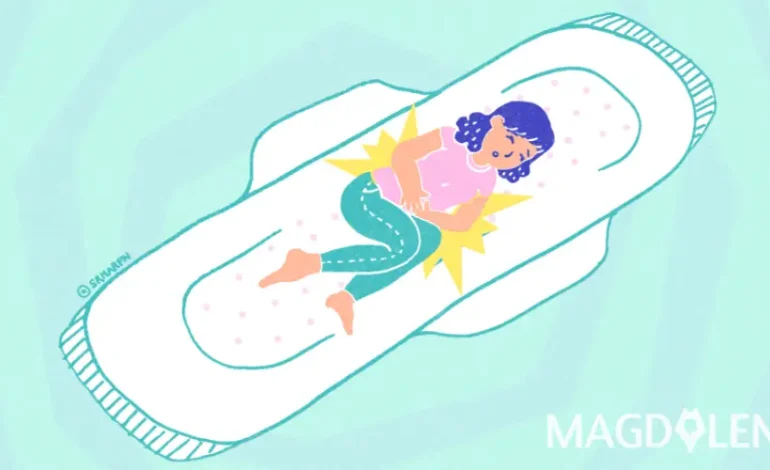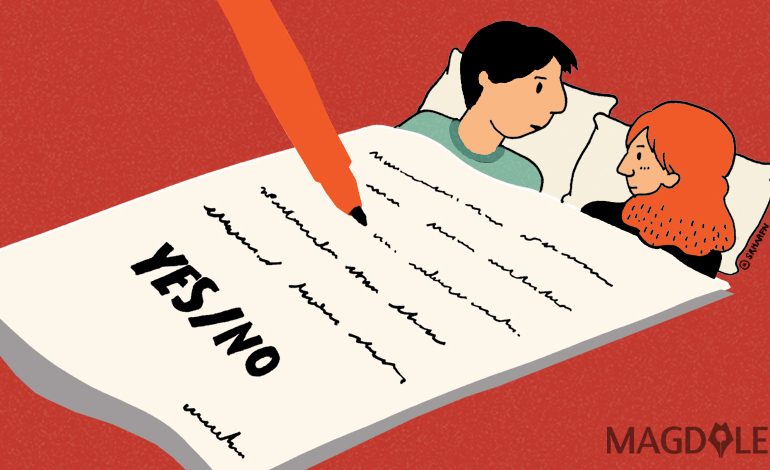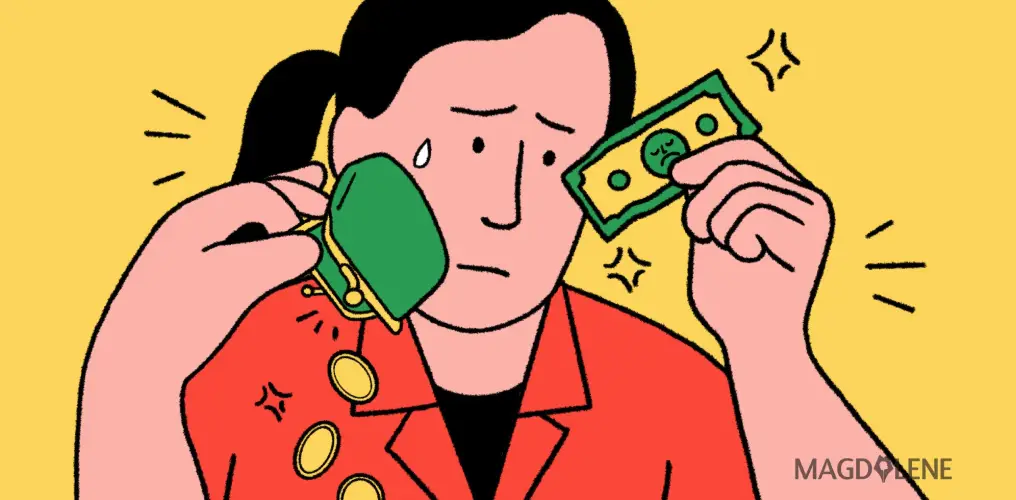I Have Uterine Fibroids and It Taught Me to Listen to My Body

Earlier this year, I was diagnosed with uterine fibroids. Having worked in reproductive health issues, and personally experiencing intense period pains for many years, I suppose it should not come as much of a surprise.
Uterine fibroids, benign tumors that grow on the walls of the uterus, are estimated to affect 171 million women worldwide, according to Global Burden of Disease Study 2013. The symptoms widely ranged from frequent need to urinate and lower back pain, to painful or heavy periods.
In my case, they are tumors the sizes of a small cantaloupe and a baseball, or ‘Fifi’ and ‘Bobo’, as I un-affectionately call each of them. A surgery was needed as it may continue to grow and increase the risk of having a miscarriage or complications if I become pregnant.
Also read: How Period Pain Ruins My Life
Women’s Reproductive Health Downplayed
It is unfortunate that women’s reproductive health has been so consistently downplayed and brushed aside in public conversations. Taboos and social norms create barriers to having open discussions on reproductive health issues. Too often women are forced to put up with pain as we are conditioned to ignore our ‘womanly problems.’
I had suspicions that something was wrong around early 2020 (of course it had to be 2020). I felt that my belly was especially large and bloated, but brushed it off as ‘corona-kilos,’ blaming it on the lockdown effect. Back then, it seemed to be the answer to anything unusual happening to your body.
Fast forward to October, I noticed how my belly was still round and protruding. I decided to have it checked by the General Practitioner (GP). But since physical contact was restricted, we only had verbal consultation. I did blood and stool tests, but the results came out fine. The GP decided to see whether this was digestion-related and suggested to cut off gluten and dairy from my diet.
Also read: Coping with My Monthly Demons: Premenstrual Dysphoric Disorder
Stop Normalizing Intense Period Pain
After one and a half months of cutting everything delicious, I did not see any change. Since the problem was in the stomach area, I had a discerning feeling that it probably had something to do with reproductive health. I went to the GP again, and quite stubbornly asked to have further examinations. She agreed and sent me for an ultrasound scan.
Less than twenty seconds after the technician started my (vaginal) ultrasound scan, I heard her say, “Oh, you have fibroids on your uterus. And it’s pretty large.”
To say I was startled was an understatement. She proceeded to ask whether I had abdominal pains. I said, well, I have highly intense pains whenever I have my period that I need to take painkillers, but that’s normal for women, right?
“Well, no, any intense pain is not normal,” she said.
I was stunned and embarrassed when she said that, because that was completely true. I had just been so used to the pain it never crossed my mind that it might be signs of something else.
How do we, as women, normalize period pains so much that we voluntarily take painkillers (for more than a decade!) instead of finding out what is wrong with our bodies?
The rest moved fast. I had a gynecology consultation to discuss possible treatments, which in my case, is to have an open myomectomy.
The goal of myomectomy is to take out the fibroids and reconstruct the uterus. Unlike hysterectomy, which removes the entire uterus, a myomectomy removes only the fibroids and preserve your uterus. This is important for someone who is planning, or would still like to have the option to conceive in the future.
Prior the surgery, I had to go through three months of hormonal treatment so that my body could rebuild red blood cells and iron stores, and to lower the risk of blood loss. It wasn’t an easy experience; I suffered massive abdominal pain, migraines and extreme fatigue. On some days, it was very difficult to concentrate as my treatment caused occasional brain fogs.
Also read: We Need to Talk About Periods
Taking Charge of Our Own Health
As I gritted my teeth through stomach cramps, with a heat-pack on my lower abdomen, I had the time to reflect and realize several important things:
- Intense period pains are NEVER NORMAL.
Why do we find it acceptable to suffer every month? Even if it is common, that doesn’t make it normal. Pain is nature’s way to tell us that something is wrong. It is because of taboos and shame built around menstruation that we have allowed this myth to persist.
- Always listen to your body, and persist
I was lucky to meet incredible gynecologist who explained and discussed my condition with me openly, but it took me a while to get referred. Do not let yourself get dismissed. As a patient you have the right to not want your discomfort to continue. If you don’t get help from the first person you ask, then find someone else.
In the next two months, hopefully Fifi and will be a thing of the past. But I hope that although uterine fibroids might not be on many people’s radars yet, it will soon change.
We must not suffer in silence and live with life-altering symptoms just because it is common. As more stories are shared, increased awareness means that at-risk women will have more access to information and treatment for the disease, and will be able to take charge of their own health.






















